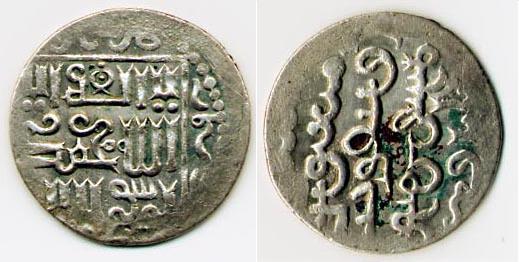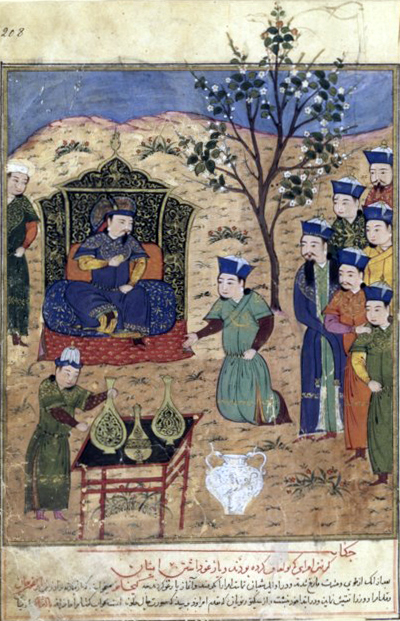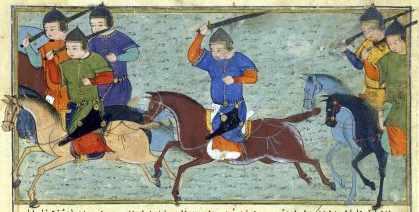|
Baydu
Baydu (Mongolian script:; ) (died 1295) was the sixth ruler of the Mongol empire's Ilkhanate division in Iran. He was the son of Taraqai, who was in turn the fifth son of Hulagu Khan.Stevens, John. ''The history of Persia. Containing, the lives and memorable actions of its kings from the first erecting of that monarchy to this time; an exact Description of all its Dominions; a curious Account of India, China, Tartary, Kermon, Arabia, Nixabur, and the Islands of Ceylon and Timor; as also of all Cities occasionally mention'd, as Schiras, Samarkand, Bokara, &c. Manners and Customs of those People, Persian Worshippers of Fire; Plants, Beasts, Product, and Trade. With many instructive and pleasant digressions, being remarkable Stories or Passages, occasionally occurring, as Strange Burials; Burning of the Dead; Liquors of several Countries; Hunting; Fishing; Practice of Physick; famous Physicians in the East; Actions of Tamerlan, &c. To which is added, an abridgment of the lives of the k ... [...More Info...] [...Related Items...] OR: [Wikipedia] [Google] [Baidu] |
Gaykhatu
Gaykhatu (Mongolian script:; ) was the fifth Ilkhanate ruler in Iran. He reigned from 1291 to 1295. His Buddhist baghshi gave him the Tibetan name Rinchindorj () which appeared on his paper money. Early life He was born to Abaqa and Nukdan Khatun, a Tatar lady in c.1259. He was living in Jazira during Tekuder's reign and had to flee to Arghun in Khorasan after Qonqurtai's execution in 1284. He was given as hostage to Tekuder by Arghun as a condition of truce in June 1284 and put in orda of Todai Khatun, his step-mother. After Arghun's enthronement, he was confirmed as governor of Anatolia together with his uncle Hulachu. Rule in Anatolia He was stationed in Erzinjan and learnt to speak Persian and to some degree Turkish during his stay in Anatolia. Gaykhatu ruled Anatolia solely after recall of Hulachu to Iran in 1286. It was then he was married to Padishah Khatun, a princess of Qutlugh-Khanids. He aided Masud II on his campaigns against Turkmen principalities, most ... [...More Info...] [...Related Items...] OR: [Wikipedia] [Google] [Baidu] |
Ghazan
Mahmud Ghazan (5 November 1271 – 11 May 1304) (, Ghazan Khan, sometimes archaically spelled as Casanus by the Westerners) was the seventh ruler of the Mongol Empire's Ilkhanate division in modern-day Iran from 1295 to 1304. He was the son of Arghun, grandson of Abaqa Khan and great-grandson of Hulagu Khan, continuing a long line of rulers who were direct descendants of Genghis Khan. Considered the most prominent of the Ilkhans, he is perhaps best known for converting to Islam and meeting Imam Ibn Taymiyya in 1295 when he took the throne, marking a turning point for the dominant religion of the Mongols in Western Asia (Iran, Iraq, Anatolia and Transcaucasia). One of his many principal wives was Kököchin, a Mongol princess (originally betrothed to Ghazan's father Arghun before his death) sent by his great-uncle Kublai Khan. Military conflicts during Ghazan's reign included war with the Egyptian Mamluks for control of Syria, and battles with the Turko-Mongol Chagatai Khanate ... [...More Info...] [...Related Items...] OR: [Wikipedia] [Google] [Baidu] |
Taghachar
Taghachar, also spelled Tajir, Ta'achar (, ; died c. 1296) was a commander in the army of the Mongol Empire. He was one of the conspirators involved in the overthrow of three Ilkhanate khans, and placed the short-lived Baidu on the throne in 1295. Background Taghachar was a member of the Suquai'ud branch of the Baarins, Baarin tribe. His father was Qutu Buqa, a Tumen (unit), tümen commander operated under Hulagu Khan, Hulagu and Abaqa Khan, Abaqa and died in battle against Golden Horde. He also had an elder brother called Taiju, who died in infancy. His other relatives, including his grandfather Temüge Noyan who was emir and uncle Jangqun who was head of security force looking after security of roads were all important emirs of Mongol armies. When Hulegu entered Persia in 1256, Taghachar commanded a battalion of his western wing. He was mainly stationed in province of Fars Province, Fars. Career under Abaqa and Tekuder His main rise to prominence began after Battle on Ağsu ... [...More Info...] [...Related Items...] OR: [Wikipedia] [Google] [Baidu] |
Nawrūz (Mongol Emir)
Nawrūz (; died 13 August 1297) was a son of governor Arghun Aqa, and was a powerful Oirat emir of the 13th century who played an important role in the politics of the Mongol Ilkhanate. Early career He inherited his father's administrative job in Khorasan and was listed as emir and son-in-law of Abaqa in medieval chroniclers' works. He supported Arghun against Teküder in 1284 and was rewarded by being ''atabeg'' of his 13-year-old son Ghazan and Prince Kingshü (son of Jumghur) as Ghazan's subordinate in Khorasan thanks to the new kingmaker Buqa. He held this powerful position of being the autonomous de facto ruler of Khorasan until Arghun Khan's arrest of Buqa. Rebellion Hearing of the arrival of an Ilkhanate army towards Khorasan, Nawrūz led a revolt against Arghun, possibly proclaiming Hulachu (son of Hulagu) and Kingshü (who seems to have died or been executed sometime during the revolt) as new ilkhan, captured his commander Tegine Yarguchi, and banished his for ... [...More Info...] [...Related Items...] OR: [Wikipedia] [Google] [Baidu] |
Ilkhanate
The Ilkhanate, also spelled Il-khanate ( fa, ایل خانان, ''Ilxānān''), known to the Mongols as ''Hülegü Ulus'' (, ''Qulug-un Ulus''), was a khanate established from the southwestern sector of the Mongol Empire. The Ilkhanid realm, officially known as ''Iranzamin'' (), was ruled by the Mongol House of Hulagu. Hulagu Khan, the son of Tolui and grandson of Genghis Khan, inherited the Middle Eastern part of the Mongol Empire after his brother Möngke Khan died in 1260. Its core territory lies in what is now part of the countries of Iran, Azerbaijan, and Turkey. At its greatest extent, the Ilkhanate also included parts of modern Iraq, Syria, Armenia, Georgia, Afghanistan, Turkmenistan, Pakistan, part of modern Dagestan, and part of modern Tajikistan. Later Ilkhanate rulers, beginning with Ghazan in 1295, converted to Islam. In the 1330s, the Ilkhanate was ravaged by the Black Death. Its last khan Abu Sa'id died in 1335, after which the khanate disintegrated. The I ... [...More Info...] [...Related Items...] OR: [Wikipedia] [Google] [Baidu] |
Arghun
Arghun Khan ( Mongolian Cyrillic: ''Аргун хан''; Traditional Mongolian: ; c. 1258 – 10 March 1291) was the fourth ruler of the Mongol empire's Ilkhanate, from 1284 to 1291. He was the son of Abaqa Khan, and like his father, was a devout Buddhist (although pro-Christian). He was known for sending several embassies to Europe in an unsuccessful attempt to form a Franco–Mongol alliance against the Muslims in the Holy Land. It was also Arghun who requested a new bride from his great-uncle Kublai Khan. The mission to escort the young Kököchin across Asia to Arghun was reportedly taken by Marco Polo. Arghun died before Kököchin arrived, so she instead married Arghun's son, Ghazan. Early life Arghun was born to Abaqa Khan and his Öngüd, possibly Christian concubine Qaitmish egechi in 8 March 1259 (although Rashid al-Din states it was in 1262, which is unlikely) near Baylaqan. He grew up in Khorasan under care of Sartaq Noyan (from Jalair tribe) who was his ... [...More Info...] [...Related Items...] OR: [Wikipedia] [Google] [Baidu] |
Hulagu Khan
Hulagu Khan, also known as Hülegü or Hulegu ( mn, Хүлэгү/ , lit=Surplus, translit=Hu’legu’/Qülegü; chg, ; Arabic: fa, هولاکو خان, ''Holâku Khân;'' ; 8 February 1265), was a Mongol ruler who conquered much of Western Asia. Son of Tolui and the Keraite princess Sorghaghtani Beki, he was a grandson of Genghis Khan and brother of Ariq Böke, Möngke Khan, and Kublai Khan. Hulagu's army greatly expanded the southwestern portion of the Mongol Empire, founding the Ilkhanate of Persia, a precursor to the eventual Safavid dynasty, and then the modern state of Iran. Under Hulagu's leadership, the siege of Baghdad (1258) destroyed Baghdad's standing in the Islamic Golden Age and weakened Damascus, causing a shift of Islamic influence to the Mamluk Sultanate in Cairo and ended the Abbasid Dynasty. Background Hulagu was born to Tolui, one of Genghis Khan's sons, and Sorghaghtani Beki, an influential Keraite princess and a niece of Toghrul in 1217. ... [...More Info...] [...Related Items...] OR: [Wikipedia] [Google] [Baidu] |
Tekuder
Ahmed Tekuder ( Mongolian: ''Tegülder'', meaning “perfect”; fa, تکودر) (c.1246 10 August 1284), also known as Sultan Ahmad (reigned 1282–1284), was the sultan of the Persian-based Ilkhanate, son of Hulegu and brother of Abaqa. He was eventually succeeded by his nephew Arghun Khan. Early life Tekuder was born c. 1246 in Mongolia to Hulagu and Qutui Khatun from Khongirad tribe as his seventh son. His birth date is not mentioned elsewhere but according to sources he died at age of 37, therefore his birth year must have been around 1246 or 1247. He was baptized in his childhood as a Nestorian Christian and was given name ''Nicholas''. He arrived in the Ilkhanate sometime in 1260s with his mother Qutui and brother Tekshin. Years later, he was granted governorship of Nahavand and Dinavar by Abaqa, who respected his mother Qutui. Qutui was also invested with territories with income of 100.000 gold coins near Mayyafariqin by Abaqa. Conversion to Islam The circumstan ... [...More Info...] [...Related Items...] OR: [Wikipedia] [Google] [Baidu] |
Yahballaha III
Yahballaha III ( 1245–13 November 1317), known in earlier years as Rabban Marcos (or Markos) or Yahballaha V, was Patriarch of the East from 1281 to 1317. As patriarch, Yahballaha headed the Church of the East during the severe persecutions under the reign of khans Ghazan and his successor Öljaitü. He acknowledged the primacy of the Pope and tried to form a church union, which was rejected by the Nestorian bishops of the Church of the East. A native of Koshang, Marcos traveled with Rabban Bar Sauma, an ascetic Nestorian monk from Mongol-controlled China to Jerusalem, however, due to the war between the Mongols and Mamluks they were prevented to reach the final destination. Patriarch Denha I of the Church of the East recalled them and consecrated Markos as the bishop of Katay and Ong, with the name Mar Yahballaha. However, both of them opted to remain in monasteries in Mosul. Yahballaha's election as the new patriarch of the Church of the East was approved by Abaqa Kh ... [...More Info...] [...Related Items...] OR: [Wikipedia] [Google] [Baidu] |
Diyar Bakr
Diyar Bakr ( ar, دِيَارُ بَكرٍ, Diyār Bakr, abode of Bakr) is the medieval Arabic name of the northernmost of the three provinces of the Jazira ( Upper Mesopotamia), the other two being Diyar Mudar and Diyar Rabi'a. According to the medieval geographer al-Baladhuri, all three provinces were named after the main Arab tribes that were settled there by Mu'awiyah in the course of the Muslim conquests of the 7th century. The Diyar Bakr was settled by the Rabi'a subgroup of the Banu Bakr, and hence the two provinces are sometimes referred to collectively as "Diyar Rabi'a". In later Turkish usage, "Diyar Bakr" referred to the western portion of the former province, around Amid (which hence became known as Diyarbakır in Turkish). Diyar Bakr encompasses the region on both banks of the upper course of the river Tigris, from its sources to approximately where its course changes from a west-east to a southeasterly direction. Its main city was Amida (Amid in Arabic), ... [...More Info...] [...Related Items...] OR: [Wikipedia] [Google] [Baidu] |
Kheshig
Kheshig ( Mongolian: Khishig, Keshik, Khishigten for "favored", "blessed") were the imperial guard for Mongol royalty in the Mongol Empire, particularly for rulers like Genghis Khan and his wife Börte. Their primary purpose was to act as bodyguards for the emperors and other important nobles. They were divided into two groups: the day guard (Torguud) and the night guard (Khevtuul). They were distinct from the regular army and would not go to battle with them, instead staying back on guard duty. Their supreme commander was called the ''Cherbi''. Because the Mongol Empire spanned most of Eurasia, its impacts on Mongol controlled-areas led to the creation of imperial guards like the Keshik. Kheshig was the term used for the palace guards of the Mughal emperors in India, and also for the matchlocks and sabres, which were changed weekly from Akbar the Great's armoury for the royal use. The royal guards in Persia who watched the King's person at night were also called Keshikchi. History ... [...More Info...] [...Related Items...] OR: [Wikipedia] [Google] [Baidu] |
Hamdallah Mustawfi
Hamdallah Mustawfi Qazvini ( fa, حمدالله مستوفى قزوینی, Ḥamdallāh Mustawfī Qazvīnī; 1281 – after 1339/40) was a Persian official, historian, geographer and poet. He lived during the last era of the Mongol Ilkhanate, and the interregnum that followed. A native of Qazvin, Mustawfi belonged to family of ''mustawfis'' (financial accountants), thus his name. He was a close associate of the prominent vizier and historian Rashid al-Din Hamadani, who inspired him to write historical and geographical works. Mustawfi is the author of three works; '' Tarikh-i guzida'' ("Excerpt History"), '' Zafarnamah'' ("Book of Victory") and '' Nuzhat al-Qulub'' ("Hearts' Bliss"), respectively. A highly influential figure, Mustawfi's way of conceptualizing the history and geography of Iran has been emulated by other historians since the 13th-century. He is buried in a dome-shaped mausoleum in his native Qazvin. Biography Mustawfi was born in 1281 in the town of Qazvin, ... [...More Info...] [...Related Items...] OR: [Wikipedia] [Google] [Baidu] |




.jpeg/1200px-Prise_d'Alamût_(1256).jpeg)
